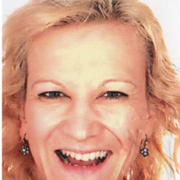Welcome brave new world of healthcare?
Looking back at 2012, it seems that healthcare, public, private and industry, are still reeling from the consequences of the global economic crisis.
In addition, men and women worldwide have gained slightly more than ten years of life expectancy overall, but they spend more years living with injury and illness according to the recently published Global Burden of Disease Study 2010. This study is the largest ever systematic effort to describe the global distribution and causes of a wide array of major diseases, injuries and health risk factors.
The results show that infectious diseases, maternal and child illness, and malnutrition now cause fewer deaths and less illness than they did twenty years ago. As a result, fewer children are dying every year, but more young and middle-aged adults are dying and suffering from disease and injury, as non-communicable diseases, such as cancer and heart disease, become the dominant causes of death and disability worldwide. Armed with this knowledge, how are we to proceed considering the financial restraints but also technological advances in mind?
Hence, on the cusp of 2013, this study certainly meets the need for complete, valid and reliable information on which the global health community can base its research and policies.
That is one side of the precarious healthcare coin.
The other relates to responsibility. As populations become more technologically savvy, they have more access to healthcare information. This, in turn, could mean a shift in responsibility


